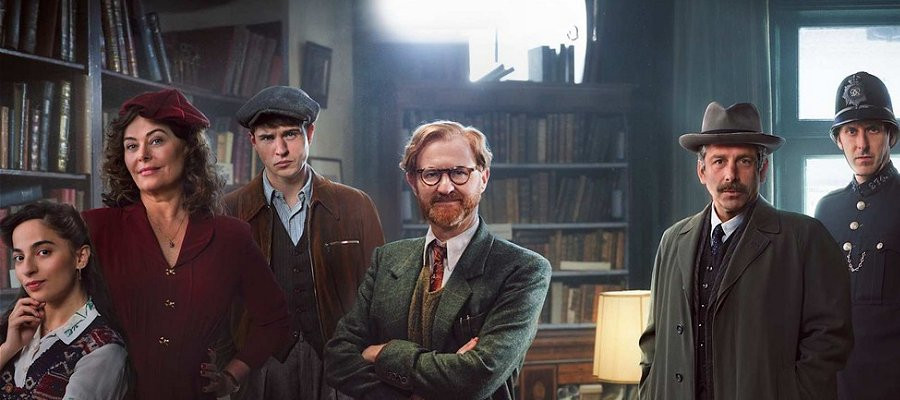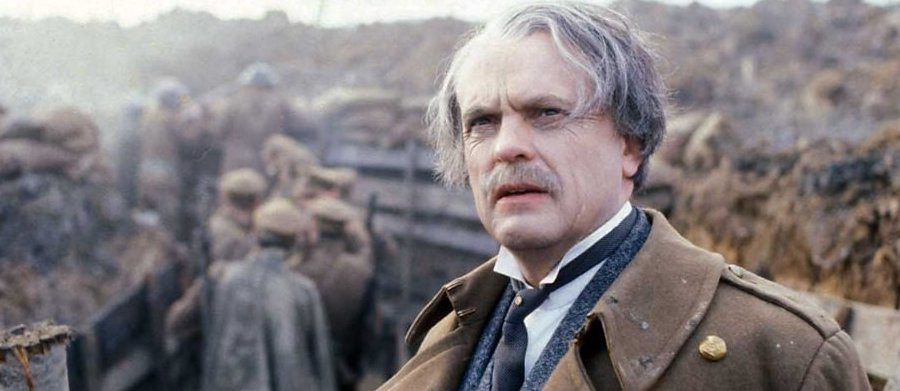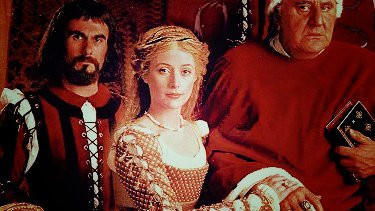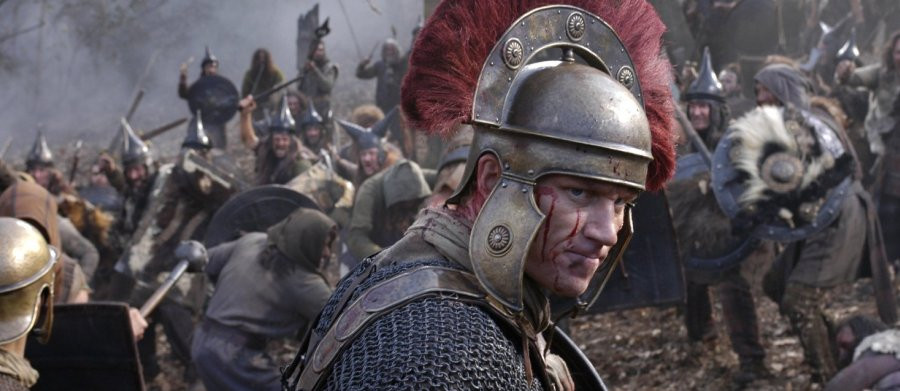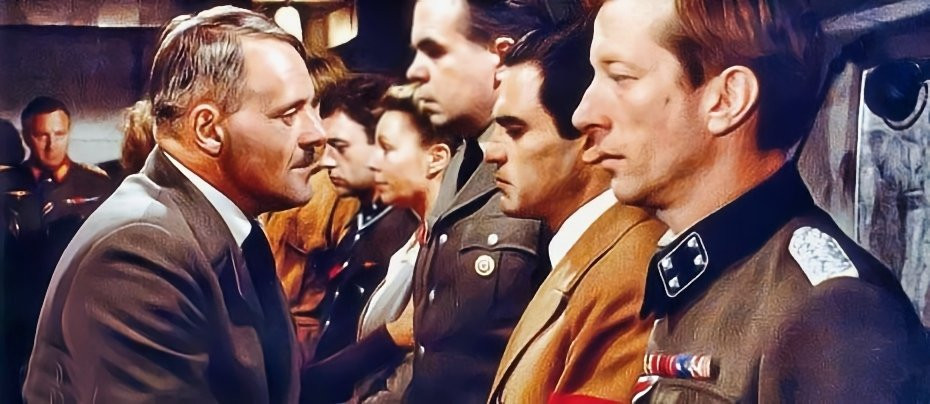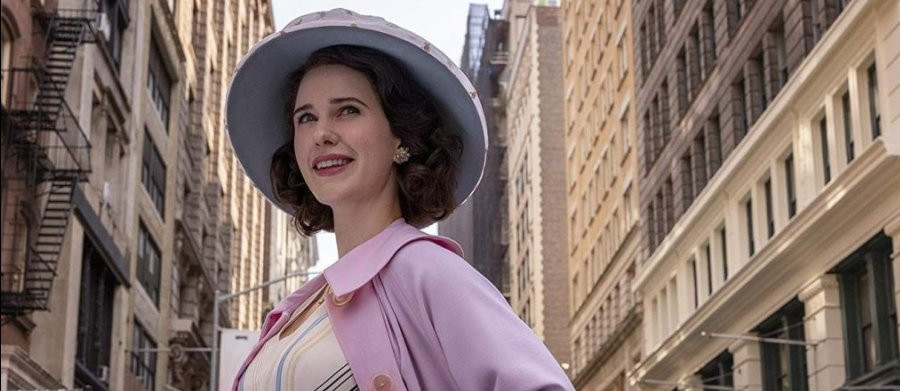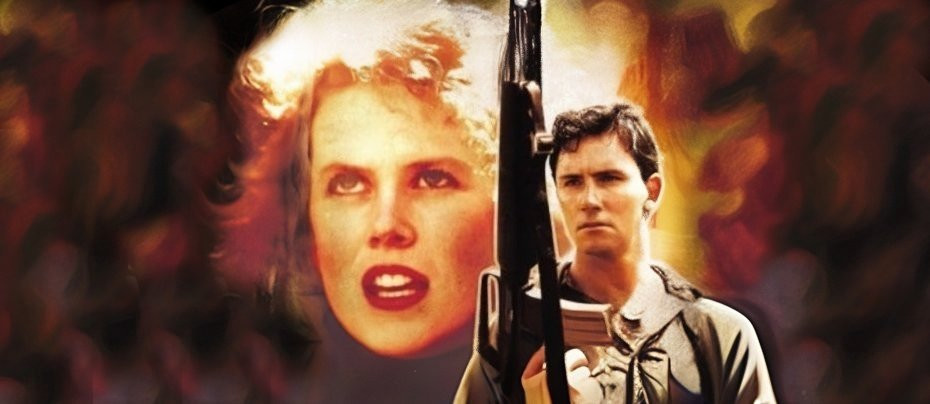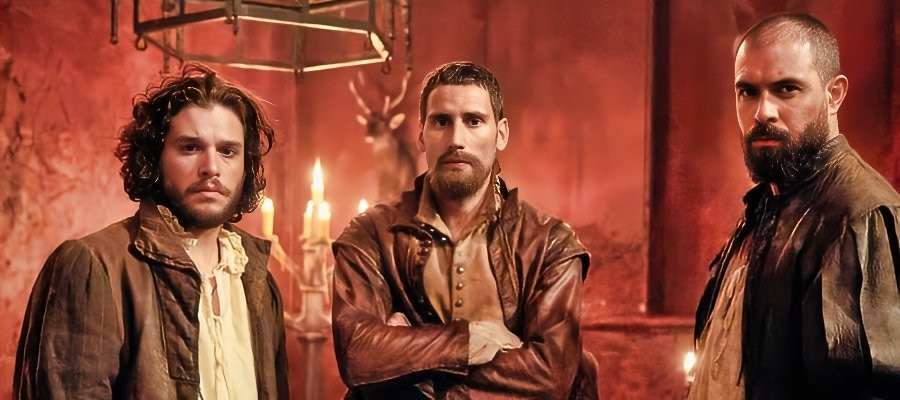
Gunpowder
2017 - United KingdomAt the height of his popularity in Game of Thrones - just before his character and the show were destroyed by lazy writing - Kit Harington had the juice to get a substantial passion project off the ground. Claiming descent, or at least collateral descent, from Robert Catesby, the actual leader of the 1605 Gunpowder Plot associated with Guy Fawkes, he is both the star and an Executive Producer of Gunpowder, a three part BBC drama about the Plot.
Fawkes was in fact little more than the hired help and Catesby certainly deserves to be better known. By sheer force of personality, he persuaded several of his fellow landowners, men with much to lose, to join him in the truly reckless venture of blowing up King James I with both Houses of Parliament in the desperate hope that it might trigger a rebellion that would restore Roman Catholicism to Great Britain. In retrospect it is difficult to imagine how even a successful assassination would have led to that result, but Catesby was one of those characters who was able to convince himself and others of anything he wanted to believe.

Harington captures this aspect of the man very effectively. His Catesby has a real passion for his cause that would impress those around him but at the same time a steadiness that would suppress any doubts they might have about the sheer recklessness of his project, a rare and formidable combination in any leader. He is genuinely devout and a caring family man, upset at the realisation that his son is frightened of him. It is a credible portrait of the sort of powerful personality even otherwise sensible men would be likely to follow into insanity.
The actual history of the Plot is a comedy of errors, as history often is, a catalogue of blunders, coincidences, and missed opportunities on both sides, the plotters' and what might be termed the national security apparatus. As the screenwriter William Goldman pointed out, what actually happens in life is often far less credible than the most bizarre fantasy, so it is sometimes necessary to tone down the truth a bit in order to make a plot seem more realistic.
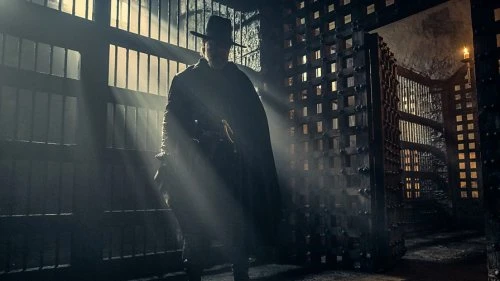
So Catesby becomes a sort of James Bond figure engaged in a game of high stakes chess with William Cecil, the Machiavellian Secretary of State. Cecil was indeed every bit as devious as he is portrayed here by Mark Gatiss, but what actually happened is closer to a scene in Carry On Henry, in which a fictional ancestor of Guy Fawkes suggests blowing up Parliament only to be reminded that his fellow conspirators all sit in Parliament. This was not true of Catesby and his circle, but as members of the gentry they had family and friends who did. At least one secret warning note was sent - with predictable results.
It is implied in Gunpowder that this note was a Cecil forgery intended to whip up the King's Anti-Catholic paranoia, but the truth is that all the clues were in plain view had anyone simply put them together. There were no dramatic running fights in taverns nor did Catesby break into the Tower of London to rescue the Jesuit John Gerard. Indeed, it is a missed opportunity not to tell the true story of Gerard's much earlier escape because it is a very exciting tale in its own right.
The most memorable performance is probably the most unfair. Shaun Dooley chews the scenery magnificently as Cecil's enforcer, Sir William Wade. The real Sir William was a hardworking civil servant and diplomat who rose to close to the top on merit. Having been trained by the legendary Sir Francis Walsingham, he was indeed experienced in security work and a fervent Anti-Catholic, but there is no evidence to suggest he was especially cruel. On the contrary, he had a reputation for honesty and, within the limits of his appointment as Lieutenant of the Tower, humanity. In any case a man of his rank, especially a self-made man, would never have acted as public executioner, a position associated with the lowest social status, in person.
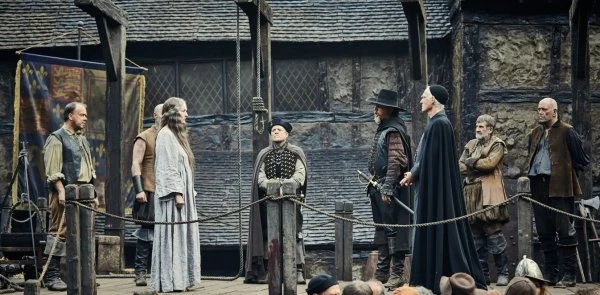
The various means of execution and torture, which are illustrated a little too gleefully, are regrettably accurate, indeed necessarily understated. Their attention grabbing demonstration in the opening minutes was nevertheless sufficient to trigger a number of complaints - from viewers concerned about proximity to the nine o'clock watershed, not from the victims of course (even if they would probably have complained too). Incidentally a minor legal technicality that is referenced in passing is also accurate: people who refused to plead to a charge could be pressed to death - but if they entered a not guilty plea and were subsequently convicted their estates would be forfeit. Such was the glorious English Common Law. Another technicality, not mentioned in the script, was that torture was actually illegal, but that did not stop the officials using it because they knew no one was ever going to prosecute them.
The most absurd scene has the Spanish Ambassador apparently hold a personal auto de fe, burning heretics, in his own great hall. The list of reasons why such a thing is inconceivable is too long for this review: just start with the obvious point that it appears to be indoors.
Such appalling errors are doubly misleading because the production went to a lot of trouble to be accurate in other respects. In common with most modern "historical" drama, there is more history in the costumes, the sets, the props, and the dressing than in the script. While most of the filming was in studio, there is some clever use of location.
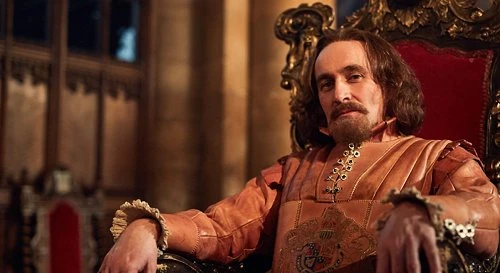
More importantly, the performances feel right. Gatiss gives a nice spin on his usual too clever by half authority figure: his Cecil is arrogant but slightly nervous, and looks as if he is permanently recoiling from his own deformed shoulder - a man who has never recovered from being mocked as a "hunchback" all his life, even when he has become too powerful for the mockery to be to his face. Derek Riddell is similarly credible as King James, an eccentric but shrewd man whose life was defined by constant distrust - as happens when your parents are murdered and you spend your childhood as a human tennis ball for ambitious nobles - not helped by his habit of bestowing affection wherever he thought he had found it.
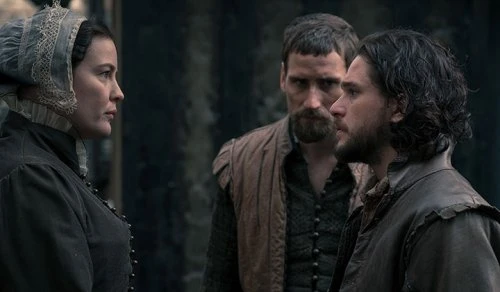
Peter Mullan (The Shoebox Zoo, Ozark) presents the Jesuit Superior Henry Garnet as a gentle soul fond of his comforts who finds himself out of his depth, which seems to be the truth. His Platonic romance with Anne Vaux (Liv Tyler), a devout Roman Catholic landowner, is quite beautiful, even if there is no real evidence for it. Their relationship gives emotional heart to the drama. Tom Cullen (Knightfall) plays Fawkes as a self-contained and very efficient hit man, which is dramatically very effective if perhaps a little flattering to the original. If Robert Emms (Atlantis) seems a little young and unsure of himself as Gerard, an experienced secret agent with a cool nerve by 1605, he brings an intensity to the role which suits it as written.
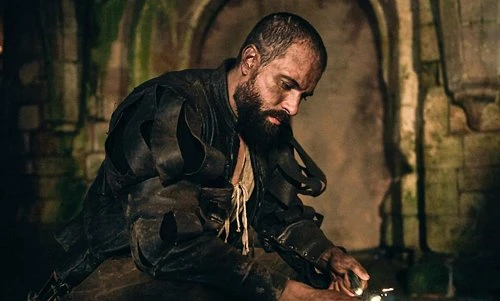
The whole thing is brisk and efficient, if not exactly enjoyable. In the end, likeable as Harington might be, it is difficult to sympathise much with Catesby and his fellow plotters, who, even if they have the pretext of suffering from religious persecution, are planning a wholly un-Christian mass murder. It is even more difficult to sympathise with King James, Cecil, Wade, and the authorities who are responsible for that religious persecution. The only characters for whom one really comes to care are Garnet and Anne, and their story is a sub-plot and not destined to have a happy ending. Indeed, tension is undermined throughout by the fact that we all know how the whole thing comes out. All that said, it is still superior to most recent historical drama, and one hopes that Harington has another go at the genre, as star or producer of both, once his career has recovered from his much mocked constant repetition of two lines in the last season of Game of Thrones.
Seen this show? How do you rate it?
Seen this show? How do you rate it?
Published on November 4th, 2025. Written by John Winterson Richards for Television Heaven.


